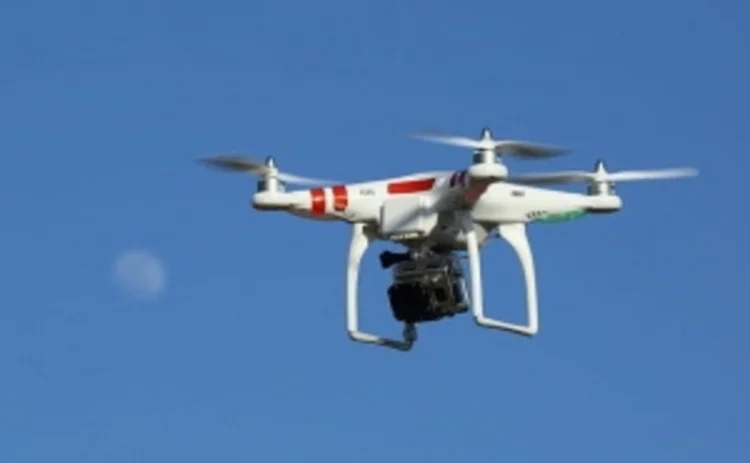
Blog: Claims specialists, underwriters and risk managers need to get together to innovate

Need to know
- Risk managers care about innovation and claims experience
- New technology like drones and video streaming is assisting the claims process
- Claims specialists have access to deep data, which could be shared with their clients
- Hourly underwriting is now possible
Technological advances help claims specialists and underwriters improve their processes but perhaps the biggest challenge for innovation may lie in both of them working together.
A report at this year's Association of Insurance and Risk Managers conference revealed that ‘lack of innovation' still tops the chart of risk managers' concerns about the insurance industry. It's a timely warning.
One of the biggest criticisms I hear from risk managers is that our industry still has a ‘silo' mentality: we continue to adhere to our traditional disciplines, creating friction in the chain from underwriting to risk management to claims. What our customers require is an integrated performance. And the frustration is growing that we have the tools to provide this cohesion, but we're just not using them.
The Airmic report also emphasises the importance of claims in the mix - it was the most frequently cited factor in prompting risk managers to browse through the list of their insurer's competitors.
Connected approach
It follows then that a broker looking for competitive advantage will wish to explore routes for better claims delivery as well as risk mitigation. Practically all commercial clients depend on technology to run their businesses and they increasingly expect a fully connected approach to risk management and claims. Now, with our ability to interrogate Big Data and to introduce smart systems to mitigate risk and deliver claims, we can give them what they want.
Take, for instance, the insurance response to flooding in recent years. As an industry, we have assembled a vast amount of data relating to risk and claims, including postcode and weather mapping, to identify which businesses are at high risk. We have worked with government to build solutions, such as Flood Re. And, on the claims front, we are exploiting new technology to deliver faster, more targeted responses.
For instance, drones can provide vital information where there is no access to a flooded area or a communication blackout. Video streaming also helps instantly identify the nature of the claim. So it's possible to rapidly gain an overview of the entire flood-affected area and prioritise our reactions on a bespoke basis. A large supermarket under two metres of water will need a totally different crisis response from a manufacturing company with no access to staff, suppliers and customers.
The case for cultural change and innovative solutions appears to be overwhelming. So what is holding it up? The cost of implementation? Costs will ultimately be borne by the policyholder but we must make sure that greater benefits accrue to them too in terms of better understanding of the risks their businesses face and clear reductions in insurance premiums. There will be no impetus for technological developments unless clients are credited for more attractive risks.
Of course, as with every advance, there will be side effects. Cyber crime, for instance, is a major threat to entire systems and the insurance industry is grappling with solutions in this area too.
Predicting weather and floods
Perhaps the biggest challenge for innovation lies in claims specialists working with risk managers and underwriters in risk prevention areas. The insurance market has access to deep claims information and tools that look at historical data in the predictive space. We can use this to inform ourselves - predicting weather and flood patterns that will trigger 1000 claims - but more importantly to inform clients. Predictive analytics provide an invaluable form of market intelligence in helping businesses to grapple with underlying risks.
The potential for technological advance is only beginning to be explored but it could well lead to bespoke underwriting such as we've already seen with telematics in commercial vehicles. We have the systems to create virtually hourly underwriting with the policy responding to changing risks during the course of the working day or season.
Technology can also help to support changes in coverage and claim support. In flood risk areas, for instance, it is necessary to mitigate risk by making the business more resilient. But environmental pressures may mean that the risk is nevertheless increasing and the business will consequently need enhanced risk transfer measures and built-in processes to get the correct people to the site as quickly as possible to manage a crisis.
I tell all my clients that to embrace the culture of innovation and the part it can play, they have to prepare while the sun is shining. Technology will add value to their risk management needs and strengthen their management information proposition. But it needs also to be adopted as part of the corporate culture: helping everyone in the business to understand their roles and the levels of risk before the game starts.
Claims Club Summit
The Claims Club Summit will be bringing the insurance claims sector together to thrash out the biggest challenges facing the industry. Join us on Wednesday 12 October at the Crystal, London!
Only users who have a paid subscription or are part of a corporate subscription are able to print or copy content.
To access these options, along with all other subscription benefits, please contact info@postonline.co.uk or view our subscription options here: http://subscriptions.postonline.co.uk/subscribe
You are currently unable to print this content. Please contact info@postonline.co.uk to find out more.
You are currently unable to copy this content. Please contact info@postonline.co.uk to find out more.
Copyright Infopro Digital Limited. All rights reserved.
As outlined in our terms and conditions, https://www.infopro-digital.com/terms-and-conditions/subscriptions/ (point 2.4), printing is limited to a single copy.
If you would like to purchase additional rights please email info@postonline.co.uk
Copyright Infopro Digital Limited. All rights reserved.
You may share this content using our article tools. As outlined in our terms and conditions, https://www.infopro-digital.com/terms-and-conditions/subscriptions/ (clause 2.4), an Authorised User may only make one copy of the materials for their own personal use. You must also comply with the restrictions in clause 2.5.
If you would like to purchase additional rights please email info@postonline.co.uk







